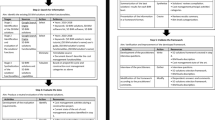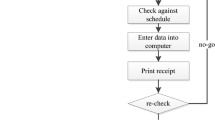Abstract
A typical process route is a sample of planning the process route. It is a kind of the process planning knowledge. In order to discover the typical process route in the process planning database from the Computer Aided Process Planning (CAPP), Knowledge Discovery in Database (KDD) is applied. Process data selection, process data purge and process data transformation are employed to get optimized process data. The clustering analysis is adopted as the algorithm mining the typical process route. A mathematics model describing the process route was built by the data matrix. There are three similarities in process route clustering: the similarity between operations was measured by the Manhattan distance based on operation code; the similarity between process routes was calculated by the Euclidean distance and expressed as a dissimilarity matrix; the similarity between process route clusters was evaluated by the average distance based on the dissimilarity matrix. Then, the process route clusters were eventually merged by the agglomerative hierarchical clustering method. And the process routes clustering result was determined by the clustering granularity of process route. This method has been applied successfully to discovering the typical process route of a kind of axle sleeves.
Similar content being viewed by others
References
Jiang Bing, Lau Henry, Chan Felix TS (1998) A process planning expert system based on a flexible digit length coding scheme. Expert Syst Appl 14:291–301
Joo Jaekoo, Park Sungsik, Cho Hyunbo (2001) Adaptive and dynamic process planning using neural networks. Int J Prod Res 39(13):2923–2946
van Zeir G, Kruth J-P, Detand J (1998) A Conceptual Framework for Interactive and Blackboard-Based CAPP. Int J Prod Res 36(6):1453–1473
Szykman Simon, Sriram Ram D, Regli William C (2001) The role of knowledge in next-generation product development systems. J Comput Inf Sci Eng 1:3–11
Last Mark, Kandel Abraham (2004) Discovering useful and understandable patterns in manufacturing data. Robot Auton Syst 49:137–152
Cheryl Foster, Hayes Erik, McWherter David, Peabody Mitchell, Shapirsteyn Yuriy, Anthony Lisa, Regli William C (2001) Discovering Knowledge in Design and Manufacturing Repositories. In: Vasant Honavar (ed) International Joint Conferences on Artificial Intelligence (IJCAI) Workshop on Knowledge Discovery from Distributed, Heterogeneous, Dynamic, Autonomous Data Sources. Seattle, WA 2001:40–42, 06 Aug
Gao Wei, Yin Guo-fu, Cheng Er-jing (2004) Constitution of aid-oriented process repository and knowledge-capture method. Comput Integr Manuf Syst 10:843–847
Jain Anil K, Topchy Alexander, Law Martin HC, Buhmann Joachim M (2004) Landscape of clustering algorithms. Proceedings - International Conference on Pattern Recognition: v1. Proceedings of the 17th International Conference on Pattern Recognition, ICPR 2004:260–263
Sudip Seal, Srikanth Komarina, Srinivas Aluru (2005) An optimal hierarchical clustering algorithm for gene expression data. Inf Process Lett 93:143–147
Oh Seung-Joon, Kim Jae-Yearn (2004) A hierarchical clustering algorithm for categorical route data. Inf Process Lett 91:135–140
Vijaya PA, Narasimha Murty M, Subramanian DK (2004) Leaders-Subleaders: An efficient hierarchical clustering algorithm for large data sets. Pattern Recogn Lett 25:505–513
Han Jiawwei, Kamber Micheline (2001) Data mining: concepts and techniques. Higher Education Press, China
Joines Jeffrey A, King Russell E, Thomas Culbreth C (1996) A comprehensive review of production-oriented manufacturing cell formation techniques. Int J Flex Autom Integr Manuf 3:161–200
Cedefño Angel A, Süer Gürsel A (1997) The use of a similarity coefficient-based method to perform clustering analysis to a large set of data with dissimilar parts. Comput Ind Eng 33:225–228
Gutierrez Rafael S, Crispin Miguel A. Computer Method for Order Scheduling System in MTO/MTS Environments. http://www.simlogisticslab.utep.edu/paper/IERCpaper1.pdf
Youkyung Won, Sehun Kim (1997) Multiple criteria clustering algorithm for solving the group technology problem with multiple process routings. Comput Ind Eng 32:207–220
Park Sang C (2003) Knowledge capturing methodology in process planning. Comput Aided Des 35:1109–1117
Author information
Authors and Affiliations
Corresponding author
Additional information
This project is supported by the National High-Tech. R&D Program for CIMS, China (Grant No. 2003AA411041).
Rights and permissions
About this article
Cite this article
Liu, S., Zhang, Z. & Tian, X. A typical process route discovery method based on clustering analysis. Int J Adv Manuf Technol 35, 186–194 (2007). https://doi.org/10.1007/s00170-006-0706-0
Received:
Accepted:
Published:
Issue Date:
DOI: https://doi.org/10.1007/s00170-006-0706-0




